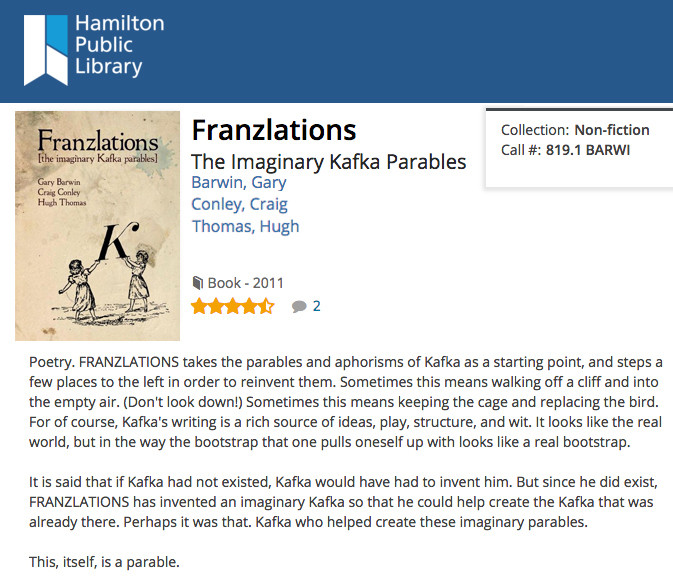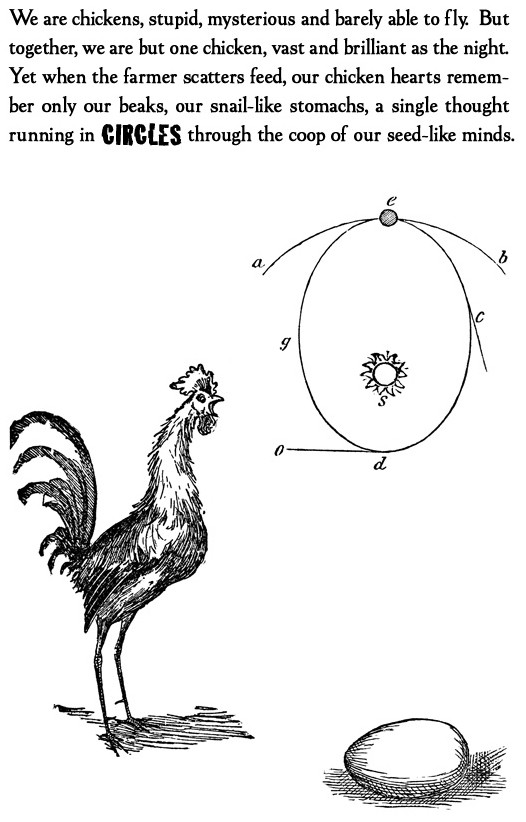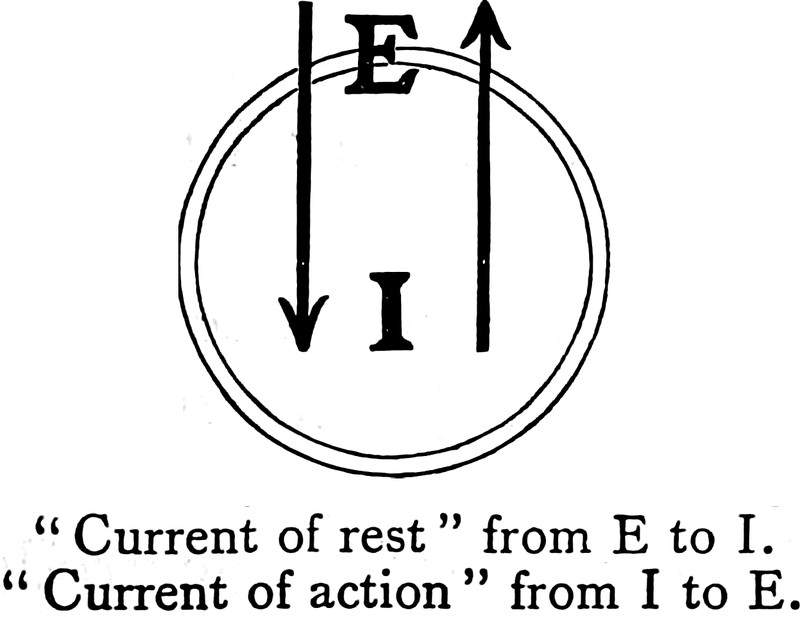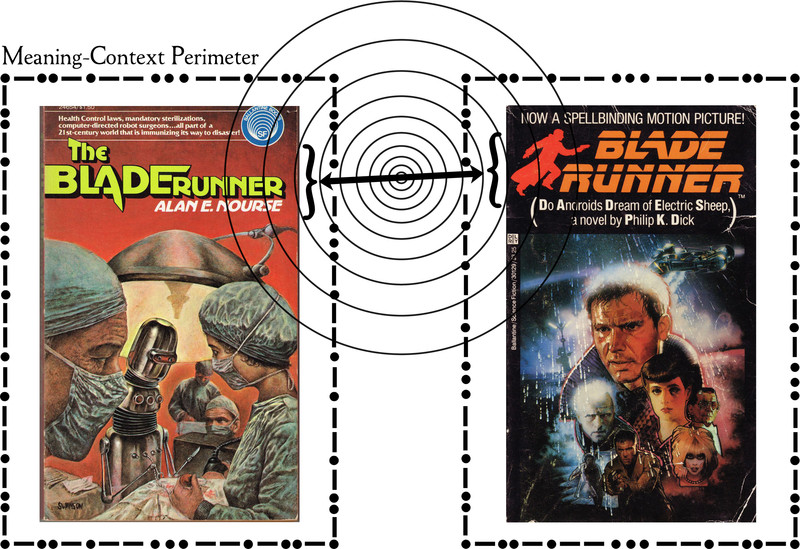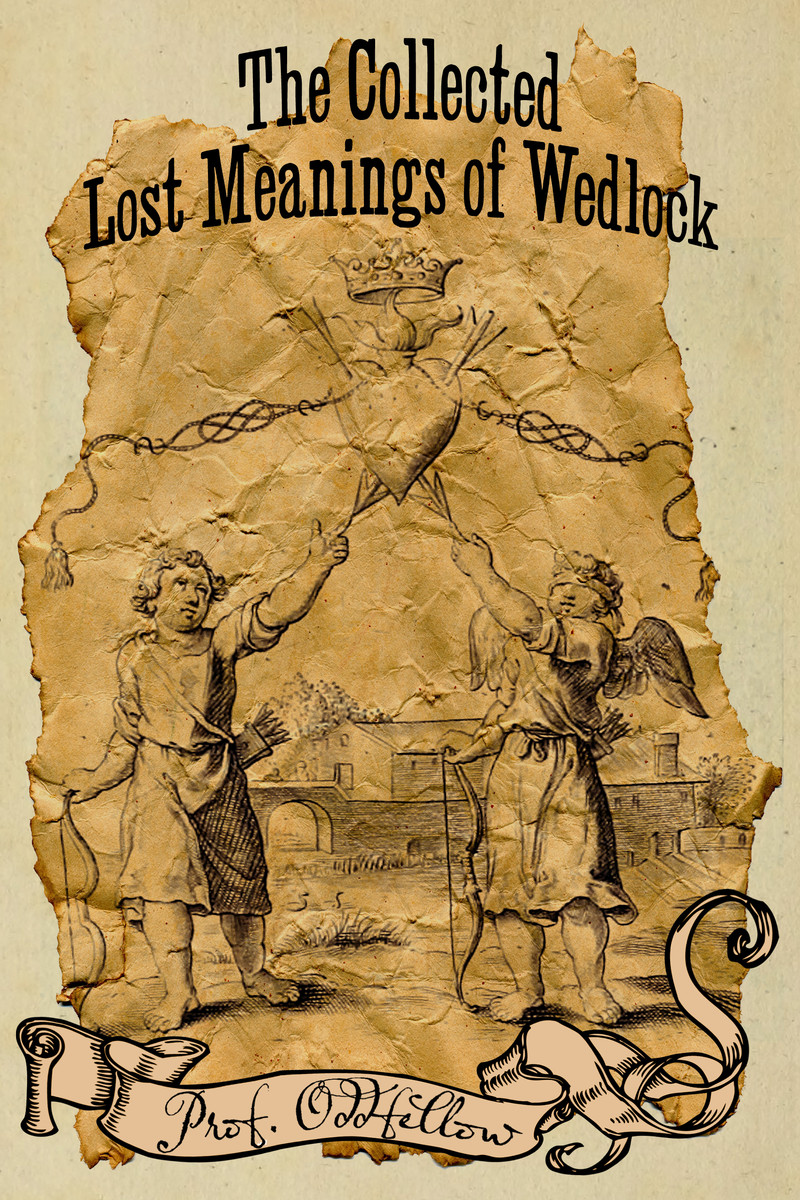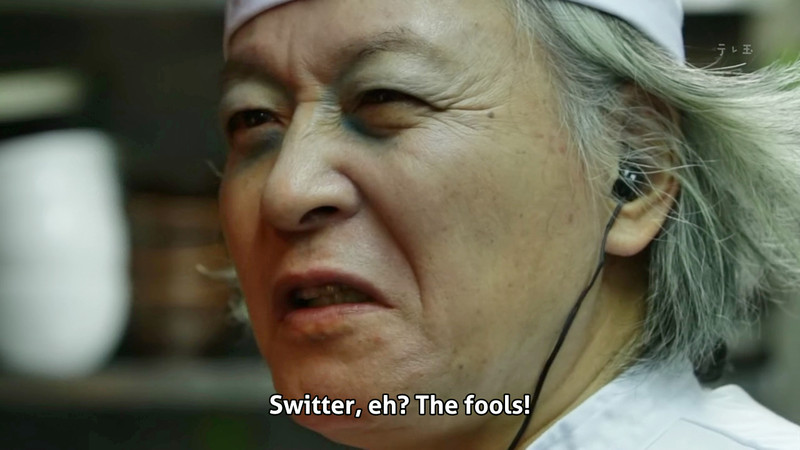I Found a Penny Today, So Here’s a Thought
|
|
|
 |
 |
 |
This is really something: the Hamilton Public Library has categorized as non-fiction our book of imaginary Kafka parables, Franzlations. As library patron Selway noted, " What higher commendation for a book of parables could there be?" This qualifies as a Retroactive Lifetime Goal (phrase used courtesy of literary humorist Jonathan Caws-Elwitt). Here's a page from Franzlations, which symbolically shows that chickens' eggs are oblong in accordance with the earth's elliptical orbit around the sun. Chickens are famously linked to the sun, as the rooster announces each dawn.
|




 |
|
|
 |
 |
 |
We thought we'd stumbled upon the most scathing satire of prejudice against other cultures when we saw a Vice " documentary" about a gay man and lesbian visiting Japan to criticize that nation's heteronormativity even as they film themselves getting married to each other in an extraordinarly welcoming Buddhist temple. "This is going too far," we gasped. "This is too sharp a commentary on gays' embarrassing desperation to be mainstreamed."
We laughed when the filmmakers decried Japan's attitude toward public displays of affection, as if being inappropriately intimate on the street is somehow a mark of societal freedom and "progress."
We presumed the piece was satire when they purported to depict a typical night in Tokyo's gay club district, when it was anything but genuine given non-hidden cameras and pre-arranged permissions for faces to be filmed (not to mention the ludicrousness of foreigners presuming to witness an underground culture when they're not part of it and when their very presence changes everything). Here's the elephant in the room: the filmmakers note that in Tokyo there's a gay club for every possible proclivity, which presumes there's at least one gay club for judgemental upstart westerners with cameras to make documentaries about how non-progressive ancient civilizations are.
We thought the piece was obviously a send-up when the newly wedded gay man and lesbian exploited a young Japanese man who was ready to tell his mother about his sexuality — they shoved their camera into the mother's face as she heard the news and then got exactly the reaction they were hoping for: she fled the room in mortification, presumably (and legitimately) insulted that her son had so little respect for her that he'd put her on the spot in front of strangers and a camera. This obviously wasn't an example of Japanese homophobia but of American-style rudeness. But here's another elephant in the room: the man ready to come out had hired someone to accompany him from a company that provides actors to fill up wedding parties, funerals, and such, so how do we know that the mother wasn't also a hired actress for the son to practice coming out? Or what if it was the mother who had hired someone to play a gay son on the verge of coming out, because that's an experience she wished to role-play? How do we know they weren't all actors (beyond the fact that "all the world's a stage," of course) hired by said company in a paid advertisement spot? Any which way you frame it, it's unbelievable.
We laughed when the filmmakers scratched their heads over the culture of Japanese heterosexual women who read manga about male lovers (since we all know that heterosexual males are interested in lesbian lovers, so it's a direct parallel to a famous phenomenon). "Westerners aren't that clueless," we cried in indignation.
We tittered uncomfortably when the filmmakers asked a Japanese trans woman if she was offended that the people at a cross-dressing bar (featuring racks of clothes to try on) are 70% heterosexual. Why would anyone expect the Japanese to share America's bizarre attitude toward so-called cultural appropriation? The Japanese woman was delighted that people felt free to experiment with expressing themselves. Duh. (Oops ... is our attitude showing?)
Wow -- this documentary calls homophobic a nation with a wildly thriving gay literature market with customers of all sexual orientations, flamboyantly gay actors on television (just pick a show at random; enough said), an extraordinarily long history of institutionalized gay relationships (such as samurai/apprentice, sempai/kohai, Buddhist priests/acolytes [and while we're at it, Shinto sports at least four guardian deities of male-male love]), cross-dressing in both theatrical and hostess settings (kabuki, anyone?) ... and so on and on. The filmmakers decry marriages of convenience even as they get married to each other for the convenience of their documentary and to experience mainstream heteronormativity. It would be so very funny, Ellen Page and Ian Daniel, if only it were a deliberate joke.
|


 |
|
|
 |
 |
 |
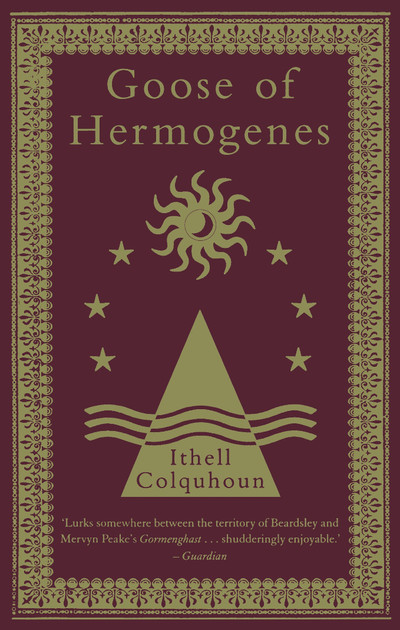
So we're reading surrealist painter Ithell Colquhoun's enigmantic novel Goose of Hermogenes and were delighted to encounter the Hermetic secret of drawing a straight line all the way to the horizon. Before revealing that, here's the novel's official description: "The heroine of this story (described only as 'I') is compelled to visit a mysterious uncle who turns out to be a black magician who lords over a kind of Prospero's Island that exists out of time and space. Startled by his bizarre behavior and odd nocturnal movements, she eventually learns that he is searching for the philosopher's stone. When his sinister attentions fall upon the priceless jewel heirloom in her possession, bewilderment turns into stark terror and she realizes she must find a way off the island. An esoteric dreamworld fantasy composed of uncorrelated scenes and imagery mostly derived from medieval occult sources, Goose of Hermogenes might be described as a gothic novel, an occult picaresque, or a surrealist fantasy." (By the way, we disagree with the word "uncorrelated" in the description.) ( 50Watts has discussed the novel and author here.) Back to the Hermetic secret, from page 53:
And he dying near by, dying in life, living in death, spending and wasting and dying each time he was with me, each time a step nearer death and death a thought dearer. He was hungry once with that phosphorescent look about him and asked to be kept alive and I gave him stony gifts; I heaped those stones above him, I laid him in that bed of boulders. We were held together at last by slanderous bonds, by ridicule, hatred, contempt, but there were older bonds than those, the sulphur, the phosphor, the salt. Now lying in a small graveyard near bones of kings and beaten gold, he is learning the length of the horizon and drawing perhaps where the worms twine a straighter line than ever before; drawing perhaps the straight wand of Hermes, with the snakes making spirals around it to right and left, the red and the blue, gyres that I must try to compas. Lying there far from the shrine of a pillow, he is echoing that distant day when the first words he spoke were Listen to me! And crying a far cry out of a six-foot cradle he is saying again Listen!
Indeed!
|


 |
|
|
 |
 |
 |
We received a message that said " Grendel was what I couldn't recall." We were reminded of the wisdom to know one's own monster.
|

 |
|
|
 |
 |
 |
The Physics of Literary Allusion
When Ridley Scott chose to name his filmed adaptation of Philip K. Dick's Do Androids Dream of Electric Sheep? after an unrelated novel, Alan E. Nourse's The Bladerunner, an "entanglement" was created. Imagine a string connecting the two Blade Runners, transcending the Meaning-Context Perimeters of each work. (In our diagram, the perimeters deliberately resemble Morse code, because beyond a literary work's context, meanings tend toward the cryptic and secret.) That entangling string is vibrated or "enlivened" by the Meaning-Context Perimeters, very much like the string of a violin activated by a bow. We see that the resulting resonance is interpenetrating — each work becomes colored by the other. The significance is quasi-magical, as readers unfamiliar with Nourse's coinage of Bladerunner are yet taken by the word's glamour in Scott's usage (in its original sense, glamour meant enchantment/magic and was an alteration of the word grammar). And vice versa, since the entangling string connects beyond time. Each title is powerful in its respective year (1974 for Nourse, 1982 for Scott) because of that entangling string; in other words, the punch of Nourse's title is in anticipation of Scott's echo of it eight years later, and, paradoxically, Scott banked on the glamour "previously" inherent in Nourse's term. (We of course recall that in terms of quantum physics, time does not exist in the way that we observe and metabolize it.)
|



 |
|
|
 |
 |
 |
You've heard the oath "Jesus hot sauce Christmas cake" in the PS4 game Until Dawn. But we can now exclusively reveal the recipe.
The Jesus Hot Sauce Christmas Cake recipe
1 3/4 cups all-purpose flour
1 1/2 cups organic granulated demerara or turbinado sugar
1 cup vegetable oil
1 cup buttermilk
1 tsp. baking soda
1 tsp. baking powder
1 tsp. ground nutmeg
1 tsp. ground cinnamon
1 tsp. allspice
1 tsp. ground cloves
1 tsp. salt
1 tsp. vanilla extract
Optional: 1 cup finely chopped spiced nuts
Preheat oven to 350 degrees. Oil and flour two 9-inch baking pans. Combine all ingredients into a large bowl (except optional nuts), and mix well on low. Then mix on high until sugar is dissolved. Fold in optional spiced nuts, and pour into pans. Bake 40 to 50 minutes. When the cakes have cooled, frost them with your favorite sour cream icing.
|

 |
|
|
 |
 |
 |
We have painstakingly curated 52 lost meanings of wedlock, one to inspire each week of an engagement. Why lost meanings? The definition of "marriage" has become hotly debated of late, to the point that the word has become "increasingly unmentionable" (Catholic Herald) or even "has no meaning at all" (Family Policy Institute). It's been said that only through loss can there be gain, that only through loss can we truly grow and understand what is at stake, that only through loss can that which is beautiful be found. As the poet Joseph August has noted, "Only through loss can we glimpse the deepest meanings, / hints and flashes whispered from below / elucted as from underwater, deep." The collected lost meanings of wedlock might surprise even those who would otherwise be considered well-informed.
|


 |
|
|
 |
 |
 |
Our favorite depiction of Stygian ferryman Charon is in the song "Sirens, No Harbour" by Sweden's Henric de la Cour. The opening lines reveal that the speaker has entered the netherworld, and though it is not immediately clear, the speaker does not yet realize that he is dead:
I came through
the darkness;
I came through
the mist.
I heard my name
on the wind.
And here we're introduced to Charon, who is the epitome of friendliness:
Please come aboard
my humble vessel.
I will take you across
this troubled sea.
But it's Charon's safety spiel that we most appreciate, like an airline's "In the event of a water landing" instructions. He is gently, indirectly suggesting that something will happen to his passenger, to help his passenger come to terms with having expired:
If something should happen,
if the sea should claim you,
please give my regards
to the fish of the deep.
If you get lonesome
in the abyss,
close your eyes;
part your lips.
|





Page 138 of 170

> Older Entries...

Original Content Copyright © 2025 by Craig Conley. All rights reserved.
|



